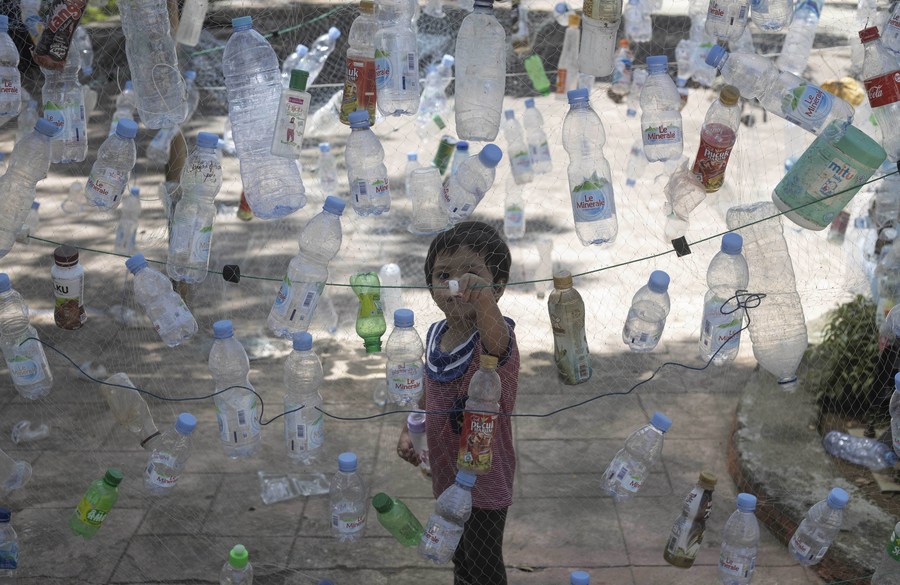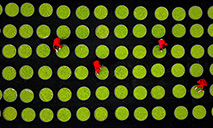Researchers warn of "concerning degree" of plastic pollution in Arctic

A boy views an installation made of plastic bottles during the Marine Debris Festival, held by the local community as a campaign to save the beach from plastics pollution, in Poliwali Mandar district, West Sulawesi, Indonesia, Oct. 3, 2021. (Photo by Yusuf Wahil/Xinhua)
Each year, between 19 and 23 million metric tons of plastic litter end up in the world's water systems, according to the study. Once in the oceans, the particles slowly break down into smaller pieces -- from macro to micro and nanoplastics -- and can even enter the human bloodstream.
BERLIN, April 5 (Xinhua) -- A "concerning degree" of plastic pollution has reached the Arctic region, according to a study published by the German Alfred Wegener Institute, Helmholtz Centre for Polar and Marine Research (AWI), on Tuesday.
A "flood of plastic" transported by rivers, the air and shipping has reached all spheres of the Arctic, the study found. High concentrations of microplastic can be found in the water, on the seafloor, on remote beaches, in rivers and even in ice and snow.

Figures made with plastics removed from shorelines are displayed at Kitsilano Beach in Vancouver, British Columbia, Canada, on June 6, 2021. (Photo by Liang Sen/Xinhua)
"The Arctic is still assumed to be a largely untouched wilderness," said AWI expert Melanie Bergmann. Their research, conducted with colleagues from Norway, Canada and the Netherlands, shows that "this perception no longer reflects the reality."
Each year, between 19 and 23 million metric tons of plastic litter end up in the world's water systems, according to the study. Once in the oceans, the particles slowly break down into smaller pieces -- from macro to micro and nanoplastics -- and can even enter the human bloodstream.

Volunteers swim to pick up plastic wastes during the Marine Debris Festival, held by the local community as a campaign to save the beach from plastics pollution, in Poliwali Mandar district, West Sulawesi, Indonesia, Oct. 3, 2021. (Photo by Yusuf Wahil/Xinhua)
"The plastic is not only a burden for ecosystems, it could also worsen climate change," the researchers warn, recalling that global plastic production is expected to double by 2045.
Photos
Related Stories
- New version of Arctic sea ice forecast system starts running
- Chinese representative refutes unwarranted U.S. accusation on Arctic cooperation
- China not playing geopolitical game in Arctic: spokesperson
- 5th International Arctic Forum held in St. Petersburg, Russia
- President of Iceland welcomes China's participation in the Arctic
Copyright © 2022 People's Daily Online. All Rights Reserved.










